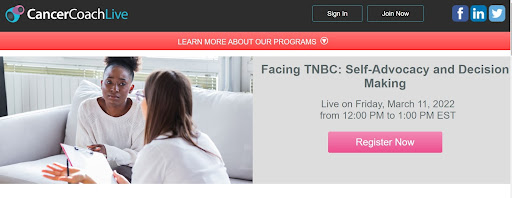A new study published in Therapeutic Advances in Medical Oncology found molecular differences in how breast cancer manifests itself in white and Black women. These findings make the need for clinical trial diversity all the more pressing if we are to find treatments that are effective for all patients. Yet many Black women are never given the option to participate in this research.
“I don’t ask my Black patients to participate in clinical trials,” one oncologist told TOUCH – the Black Breast Cancer Alliance CEO and Co-founder Ricki Fairley. Paradoxically, the oncologist said he had worked hard to build his patients’ trust and if he mentioned trials, he would lose them.
Fairley knew the doctor’s position wasn’t an anomaly. As a 10-year cancer survivor and influential advocate, Fairley secured funding for #BlackDataMatters, a rigorous research study to uncover why Black women weren’t represented in clinical trials. The work validated the fact that doctors were usually not inviting Black women to enroll in clinical trials. Moreover, a second challenge loomed. No one was addressing the fears and misconceptions circulating in the community of Black breast cancer patients.
 Breaking through myths
Breaking through myths
The researchers found that although the network of breast cancer patients (sometimes called breasties) was a trusted voice, there were many myths being shared across that community. “Breasties were talking to other breasties, saying don’t do a trial because you’ll get a sugar pill and die, or you’re going to be a guinea pig,” said Fairley.
A call to action
As a former marketing executive with Coca-Cola, Fairley saw this as a messaging problem, and she set out to change that. This sparked the creation of the When We Tri(al) movement (www.whenwetrial.org) to save Black lives through research.
Fairley explains this simply: “Without participation in clinical trials, Black women won’t be considered when it comes to live-saving cancer drugs.”
Developed in partnership with breastcancer.org, When We Tri(al) is a rallying cry to Black women that they deserve better.
Together, the organizations are empowering Black women and helping make clinical trials more inclusive through an impressive outreach campaign featuring “The Doctor Is In,” a weekly web series on BlackDoctor.org Facebook Live. The unique program offers professional guidance and encouragement to address Black breast cancer issues and questions, to discuss survivorship, and to help Black women live their best lives.
This is no dry medical show. The program brings together an impressive array of professional women who are incredibly open about their experiences and supportive of one another. Topics range from talking with your kids about cancer to navigating the holidays during treatment. The show’s Valentine’s Day program with couples dealing with breast cancer drew more than 86,000 views. “The best thing about the program is the sisterhood and the connections,” Fairley said.
Educating patients and providers
TOUCH is also breaking down myths, such as the idea that a cancer patient might receive a placebo drug in a trial. Education is core to overcoming these misconceptions.
The organization’s next endeavor is a partnership with PlatformQ Health and the National Breast Cancer Foundation to produce online education for patients, caregivers, and healthcare providers. The patient/caregiver session Facing Triple-negative Breast Cancer: Self-advocacy and Decision-making will bring together an expert panel of oncology doctors and a patient advocate for a free interactive session reviewing the risk factors for triple-negative breast cancer, discussing how patients can advocate for themselves, explaining treatment options, and exploring the possible benefits of clinical trial participation.
The provider session will address disparities in care and how to work in partnership with Black women on clinical trial research enrollment. The panelists will discuss solutions to address disparities in care for women of ethnic minorities diagnosed with triple-negative breast cancer, review advances in pathogenesis and prognosis, evaluate emerging treatment options, and share real-world patient experiences.
Headed to the Hill
TOUCH is participating in conversations at the national level about how to achieve greater parity for Black women with breast cancer. They joined together with fellow breast cancer organizations in celebrating March as Triple-Negative Breast Cancer Month. Advocates from TOUCH will be joining Congresswoman Bonnie Watson Coleman (NJ-12) for their first Congressional meeting to gain support for acts, including the DIVERSE Trials Act to promote meaningful demographic and geographic diversity in clinical trial participation. The hope is that this legislation will also lead to more decentralization of clinical trials to reduce barriers to participation such as issues with the accessibility of cancer centers.
Meanwhile, Fairley and her colleagues field calls every day for women facing triple-negative breast cancer, and fight to give them the very best chance.
“I would like to give them hope that science works,” Fairley said. “When I was diagnosed, I took medications that were experimental that are now standard of care. I hope my voice and my story shows women they are in control of improving their outcome.”
Looking for support or to join the conversation? Visit WhenWeTrial.org or follow TOUCH on Facebook.



